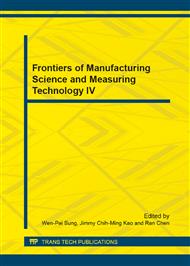p.1571
p.1575
p.1580
p.1584
p.1588
p.1593
p.1597
p.1601
p.1605
Parameter Estimation of Nonlinear Muskingum Models Based on OEPSO
Abstract:
In the past, various methods have been used to estimate the parameters in the nonlinear three-parameter Muskingum model to allow the model to more closely approximate a nonlinear relation compared to the original two-parameter Muskingum model. In this study, the particle swarm optimization algorithm based on the organizational evolutionary (OEPSO), which the evolutional operations are acted on organizations directly in the algorithm, and gained the global convergence ends through competition and cooperation, and overcome the shortcomings of the traditional PSO, is introduced. The OEPSO is proposed for the purpose of estimating the parameters of nonlinear Muskingum routing model. The performance of this approach is compared with other reported parameter estimation techniques. Results of the application of this approach to an example with high nonlinearity between storage and weighted-flow, show that the OEPSO approach is efficient in estimating parameters of the nonlinear routing models.
Info:
Periodical:
Pages:
1588-1592
Citation:
Online since:
August 2014
Authors:
Price:
Сopyright:
© 2014 Trans Tech Publications Ltd. All Rights Reserved
Share:
Citation:


